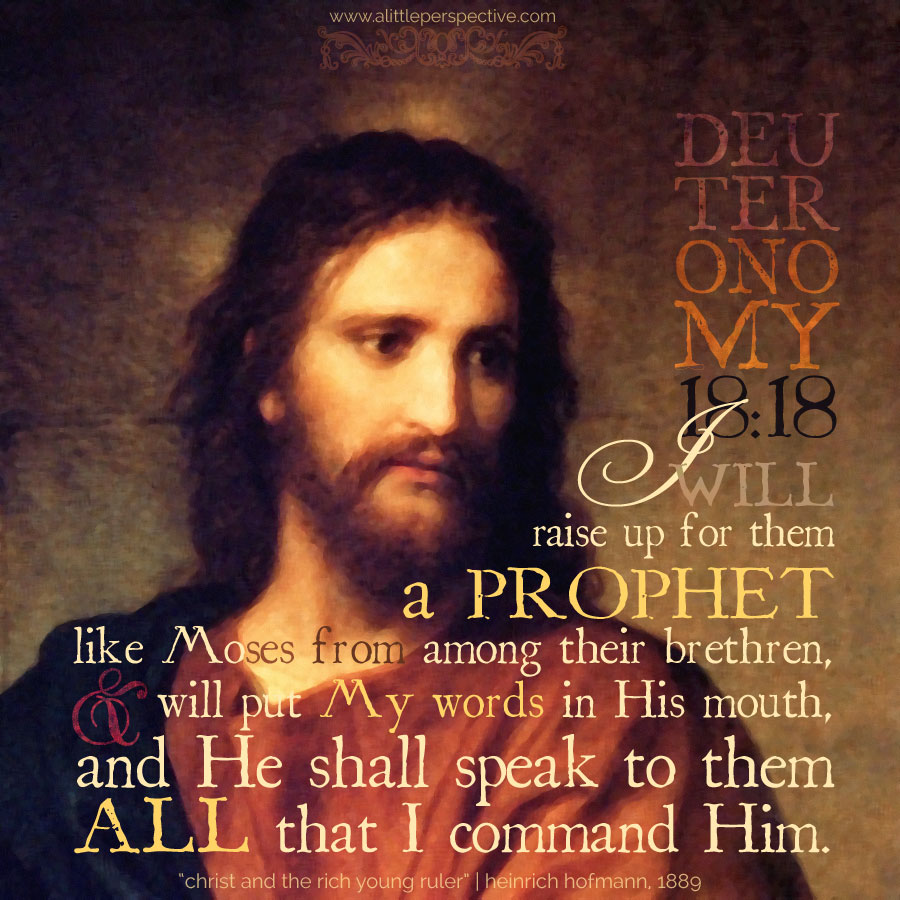Read Deuteronomy 17 and 18 at Bible Gateway.
The Hebrew paragraph divisions for today’s chapters are:
Deu 17:1 {s} A blemished sacrifice is detestable to YHVH
Deu 17:2-7 {p} Idolaters are detestable to YHVH
Deu 17:8-13 {s} Authority of the priest and judge
Deu 17:14-20 {s} Authority of the king
Deu 18:1-2 {s} Authority of the Levites
Deu 18:3-5 {s} What is due the Levites
Deu 18:6-8 {s} Equal shares for Levites
Deu 18:9-22 {s} Authority of the prophet
We can see a topic of authority being repeated, and are mindful that the next commandment following Honor the Sabbath day, is Honor father and mother. Our fathers and mothers are our first authorities who have been established by God, delegated to wield some of His authority. When do we leave the explanation of the 4th commandment and begin the explanation of the 5th? The final Hebrew paragraph dealing with feast days was:
Deu 16:13-17 {s} Tabernacles is holy to YHVH
The very next Hebrew paragraphs are:
Deu 16:18-20 {s} Injustice is detestable to YHVH
Deu 16:21-22 {s} Idolatrous groves and pillars are detestable to YHVH
The very first sentence, in fact, of Deu 16:18 begins:
“You shall appoint judges and officers in all your gates …” Deu 16:18
No more mention of sevens, but now, who is in authority on the LORD’s behalf. So it is my belief that the explanation of the 5th commandment, what it means to Honor father and mother, runs from Deu 16:18 to Deu 18:22. This section makes a chiastic strucutre:
1a) Deu 16:18, Judges’ (local) authority delegated by YHVH;
1b) Deu 16:19-20 {s}, Justice;
1c) Deu 16:21-22 {s}, Idolatrous pillars;
central axis) Deu 17:1 {s}, Prohibition against blemished sacrifices;
2c) Deu 17:2-3, Idolaters;
2b) Deu 17:4-7 {p}, Justice for the idolater;
2a) Deu 17:8-18:22 {sx6}, Priests’, kings’, Levites’, prophets’ (national) authority delegated by YHVH.
It is an unusual central axis, a single verse in a paragraph all by itself, in the middle of a discourse on proper exercise of authority.
“You shall not sacrifice to the Lord your God a bull or sheep which has any blemish or defect, for that is an abomination to the Lord your God.” Deu 17:1
This entire section might be restated as a series of that which is an abomination to the Lord God, for the word “abomination” occurs over and over again. Repetition is a teaching tool of Torah.
Deu 16:18-20 {s} Injustice is an abomination to YHVH
Deu 16:21-22 {s} Idolatrous groves and pillars are abominations to YHVH
Deu 17:1 {s} Blemished sacrifices are an abomination to YHVH
Deu 17:2-7 {p} Idolatry is an abomination to YHVH
Deu 17:8-13 {s} The man not heeding the priest standing before YHVH is so wicked as to deserve death
Deu 17:14-20 {s} The king shall not let his heart be lifted up or turned away from YHVH
Deu 18:1-8 {sx3} Do not withhold what is due the priests and Levites from them
Deu 18:9-14 Pursuing the occult is an abomination to YHVH
Deu 18:15-22 {s} The false prophet is so wicked as to deserve death
Why this emphasis on what is abominable in the section on the proper honor and exercise of God’s authority?
For rulers are not a terror to good works, but to evil. Do you want to be unafraid of the authority? Do what is good, and you will have praise from the same. For he is God’s minister to you for good. But if you do evil, be afraid; for he does not bear the sword in vain; for he is God’s minister, an avenger to execute wrath on him who practices evil. Rom 13:3-4
We learn that this is why delegated authorities exist in the first place. They are God’s ministers who uphold good works and punish evil works. All delegated authorities have this responsibility and boundary; and I believe this is why that which is evil or abominable to the Lord God is a recurring theme in this section explaining honoring God’s authority.
Back to the central axis, which is, the excellence of the unblemished sacrifice. It is a prophecy of Messiah — He is the unblemished Lamb of God who takes away the sins of the world. He is, in fact, our Judge, King, High Priest, and Prophet. All the authority of God finds its home in Him. But at the very heart of the Ruler, is the Lamb who laid down His own sinless and spotless life, because His love for us is great …!

















Leave a Reply